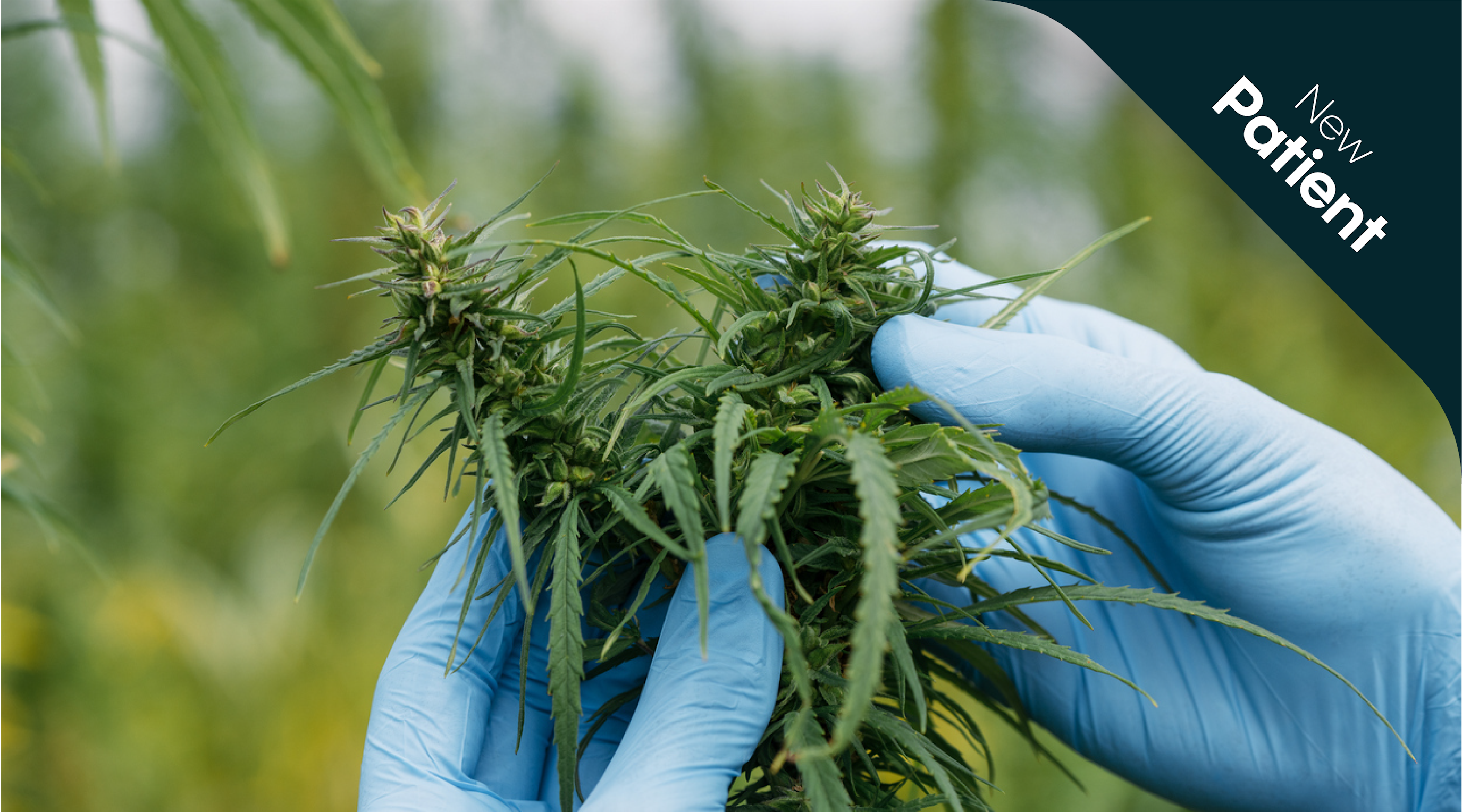How does medical cannabis affect the body
6 min read
Sam North
To launch our New Patient blog series, we're beginning with a beginner's guide that explores the effects of medical cannabis on the body.
Contents
While medical cannabis became a legal reality here in the UK in November 2018, it only properly hit the 'mainstream' a year or two ago. The world of medical cannabis is complex and can be overwhelming for new patients, and this is especially true for those who are new to cannabis altogether.
With that in mind, we've put together a quick guide to understanding the effects of medical cannabis on the body, so new patients can feel informed and confident in their treatment journey.
What is medical cannabis?
Medical cannabis is just that - any cannabis product that has been prescribed for medical purposes. Here in the UK that includes dried cannabis flower, cannabis-based oils, capsules, tinctures, topicals, and sprays.
In the UK, the term "cannabis-based products for medicinal use" (CBPM) is used to describe all medical cannabis products. Other terms often used here are "cannabis-based treatment options", and "medical cannabis treatments", but in the end, they all refer to the same thing - taking a cannabis based product for medicinal purposes.
How does medical cannabis work?
The key to understanding the mechanisms behind how medical cannabis can offer therapeutic benefits to patients lies in cannabinoids (the medicinal components of cannabis) and how they interact with the endocannabinoid system.
The role of cannabinoids
Cannabinoids, the major pharmacologically active compounds found in cannabis, are the superheroes of this plant's story. Tetrahydrocannabinol (THC) and cannabidiol (CBD) are the most well-known among them, both renowned for their therapeutic properties. But there are scores of other lesser-known cannabinoids like CBN, CBG, and THCV, each with its unique potential for health benefits.
Terpenes can also play a role in the effects of medical cannabis on the body. These compounds give each strain its unique aroma and taste, but they can also have therapeutic properties like antiseptic, anti-inflammatory, and anti-anxiety effects.
Unlocking the science: the endocannabinoid system
As research progresses into the medicinal benefits of cannabinoids, so too does our knowledge of the endocannabinoid system (ECS). The ECS was only discovered in the late 1980s but is now thought to be the master regulatory system in our bodies.
The ECS is a complex network of receptors, enzymes, and endocannabinoids (cannabinoids produced by the human body) found throughout both the brain and body. This system plays a crucial role in maintaining balance and homeostasis in our bodies, regulating everything from mood, sleep, pain, immune function, inflammation, sexual function, and more.
Phytocannabinoids (cannabinoids produced by cannabis) have been shown to be able to interact with this system directly and indirectly, helping to modulate it and bring balance back to the body. This is how medical cannabis is able to offer relief from such a wide range of conditions and symptoms.
Understanding the effects of medical cannabis on the body
Now that we have a basic understanding of what medical cannabis is, how it works, and its relationship with the endocannabinoid system, let's have a look at the potentially positive effects it can have on the body.
The list of conditions and symptoms that medical cannabis can potentially help with is long (and still growing), but some of the most well-known include chronic pain, arthritis, anxiety, depression, epilepsy, multiple sclerosis (MS), and cancer-related symptoms like nausea and loss of appetite.
Research is still somewhat limited, mostly due to the strict legal status that cannabis has been under for so long. That is slowly changing, and with researchers now able to conduct more peer-reviewed clinical studies, the body of evidence for the medicinal benefits of cannabis is growing daily.
How do new patients access medical cannabis in the UK?
There are two paths for new patients to explore - The NHS and private cannabis clinics.
As of writing, the NHS will only prescribe medical cannabis in exceptional circumstances, and for three conditions:
- Muscle spasticity caused by multiple sclerosis (MS)
- Nausea and vomiting caused by chemotherapy
- Severe, treatment-resistant epilepsy.
If your condition falls outside these three categories, you will have to seek private care.
Private clinics like Releaf offer a more accessible route to medical cannabis for patients with conditions that are not covered by the NHS guidelines.
To find out if you are potentially eligible for medical cannabis treatment in the UK, head to our fast and free medical cannabis eligibility checker. It takes less than 30 seconds to complete, after which you will have a much clearer understanding of whether medical cannabis could be an option for you.
FAQs
Does cannabis reduce inflammation?
Yes, research has shown that both THC and CBD can reduce inflammation in the body.
Does medicinal cannabis make you drowsy?
Depending on the CBPM prescribed and dosage size, some patients may experience drowsiness, while others may feel more energised or alert. Medical cannabis treatment has been shown to offer patients a high safety profile with few negative side effects.
Final thoughts: finding the right treatment plan
Everyone's body and endocannabinoid system are unique. This means that there really is no one-size-fits-all approach when it comes to medical cannabis treatment.
If you, or a loved one, would like to learn more about the available medical cannabis approaches, Releaf is here to help. Check out the rest of our New Patient blog series for quick, easy to digest answers to all the more common questions we hear from our new patients.
Share article
Did you like this article?
It is important to seek medical advice before starting any new treatments. The patient advisors at Releaf are available to provide expert advice and support. Alternatively, click here to book a consultation with one of our specialist doctors.
Elevate your wellness with medical cannabis
Get comprehensive care, convenience, and confidence with an all-in-one treatment plan.
Am I eligible?Authors
Sam North, a seasoned writer with over five years' experience and expertise in medicinal cannabis, brings clarity to complex concepts, focusing on education and informed use.
compliance checked
Compliance Director
Editorial Policy
All of our articles are written by medical cannabis experts, guided by strict sourcing guidelines, and reference peer-reviewed studies and credible academic research. Our expert clinical team and compliance specialists provide valuable insights to ensure accuracy when required. Learn more in our editorial policy.
Need more help?











